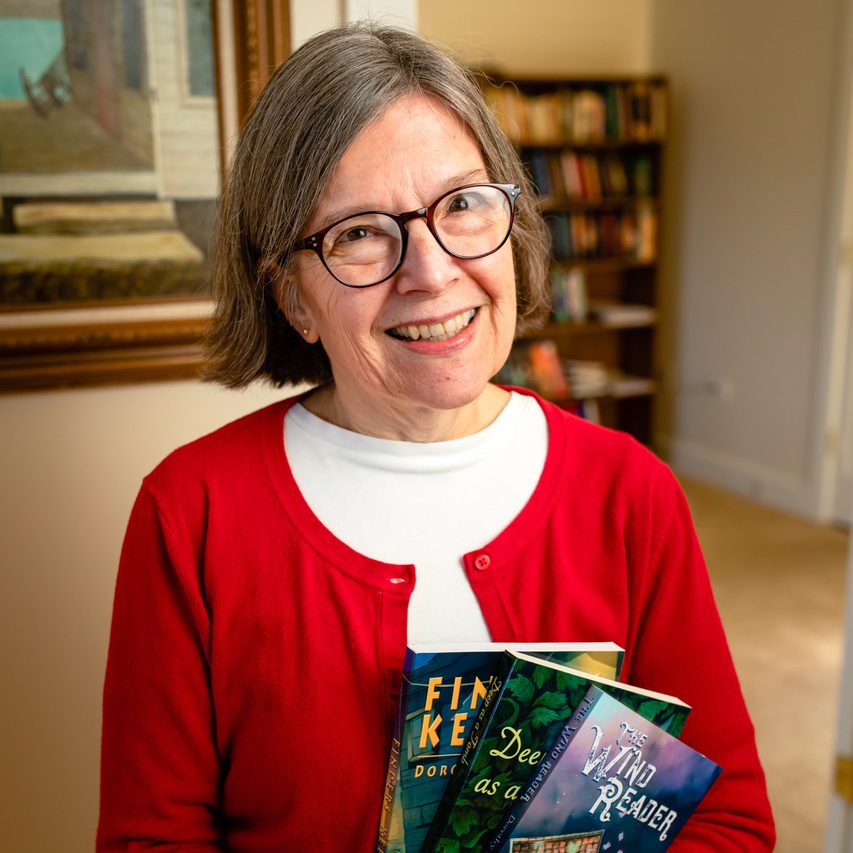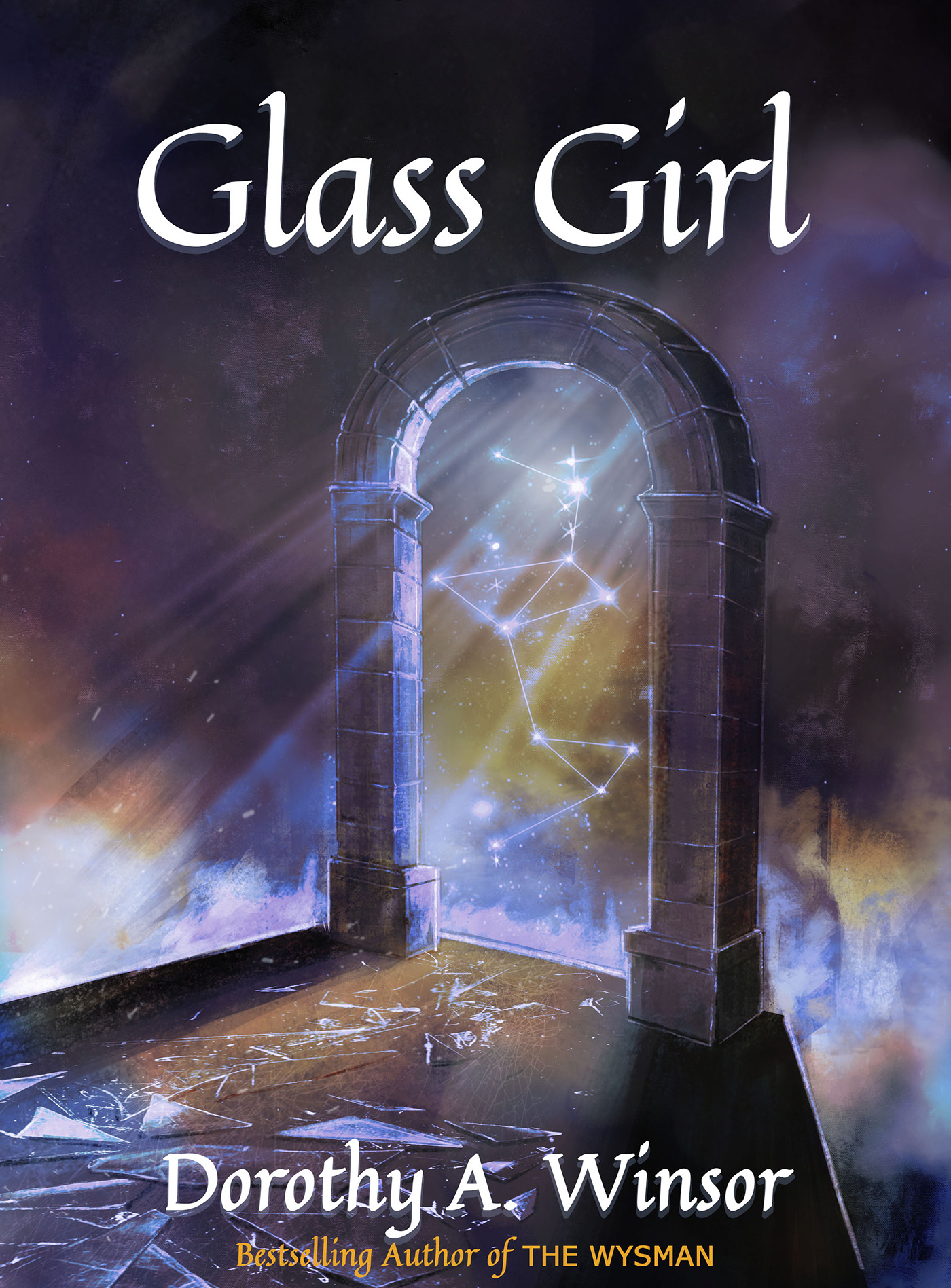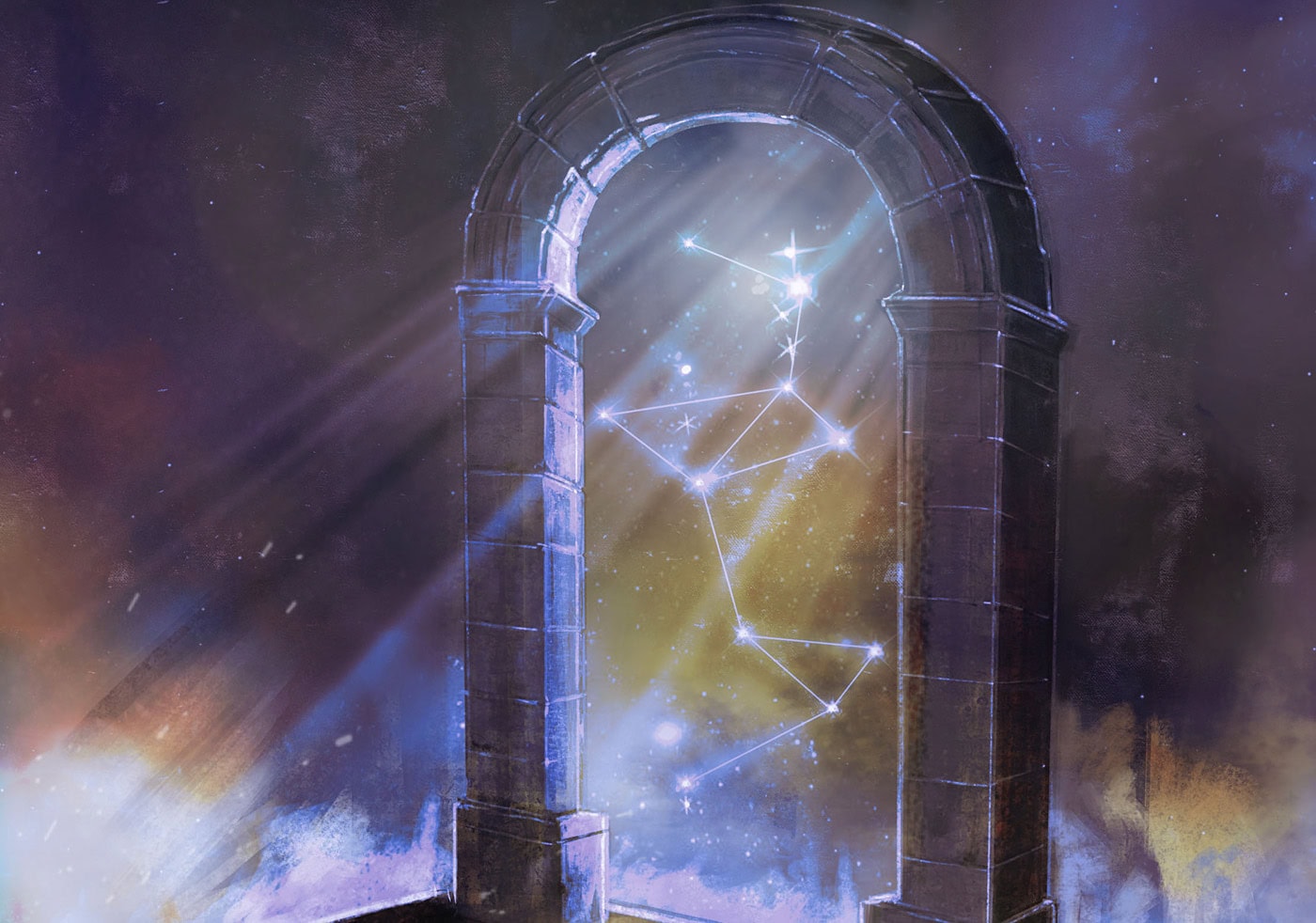
At age 72, Dorothy Winsor moved to The Garlands and took up a second career as a young adult fiction author. To date, she has published six books, including her most recent young adult novel, Glass Girl.
Dorothy’s advice to others who are considering pursuing new dreams in retirement is:
“Don’t doubt yourself! Be brave enough to try new things no matter what your age.”
Glass Girl is (unsurprisingly) about a girl who makes glass . . . but that’s not all!
Sharing her inspiration and a glimpse at her writing process, Dorothy says:
I got the idea for it probably ten years ago now, when I heard an NPR story about a factory somewhere in Latin America. Yes, ten years ago! This story has sat on my computer for a long time. Occasionally, I would drag it out, tinker with it, decide it wasn’t good enough yet, and put it away for a while. But during the pandemic, I finally wrote a version I liked.

So anyway, in this NPR factory story, the workers (all women) protested when the owner cut their wages. In answer, he threw the key on the floor and told them to pick it up and see if they could do any better, which they did. After they made the factory profitable, of course, he wanted it back.
Thus, this was a story of the underdog triumphing. Plus, I was charmed by the idea of the feminine world inside the factory. I settled on glassmaking because it required a factory-like facility that could exist in my pre-industrial world. To create a compelling plot, I threw in a mystery. The central character’s mother (who is also the factory’s craft mistress) is murdered in the book’s opening chapter, and when the Watch proves inept, she decides to hunt down the murderer herself.
In one way, then, that’s what Glass Girl is about. But really, that’s not what it’s about. It’s not what’s at its heart that kept me coming back to it for ten years.
I’m talking about the book’s theme. By “theme,” I don’t mean message or lesson. I mean something like a topic or a question about what it means to be a human being.
I once read some writing advice to the effect that all good stories have a theme, even if the writer can’t articulate it yet. When I started Glass Girl, I thought it was going to be about trust. I thought the central character was someone who learned to trust, though it was hard for her. And indeed, the theme of trust does run through the book.
But I’ve since realized that the central theme was not trust but love. In Glass Girl, I am asking myself, the reader, and my characters how flawed human beings can love one another (or not). What does love ask of us? What are we willing to do for the people we love? What are we willing to do to gain love, even love of a warped nature? How do we react when we are deprived of it?
So, there’s glass-making here, defiant workers, and, for a bonus, rumors of a sleeping dragon. But there are also questions about love. I hope people enjoy the book. I’m going to miss it now that it’s out in the world and on its own.
Glass Girl is available at all online bookstores, including Amazon and Barnes & Noble.








